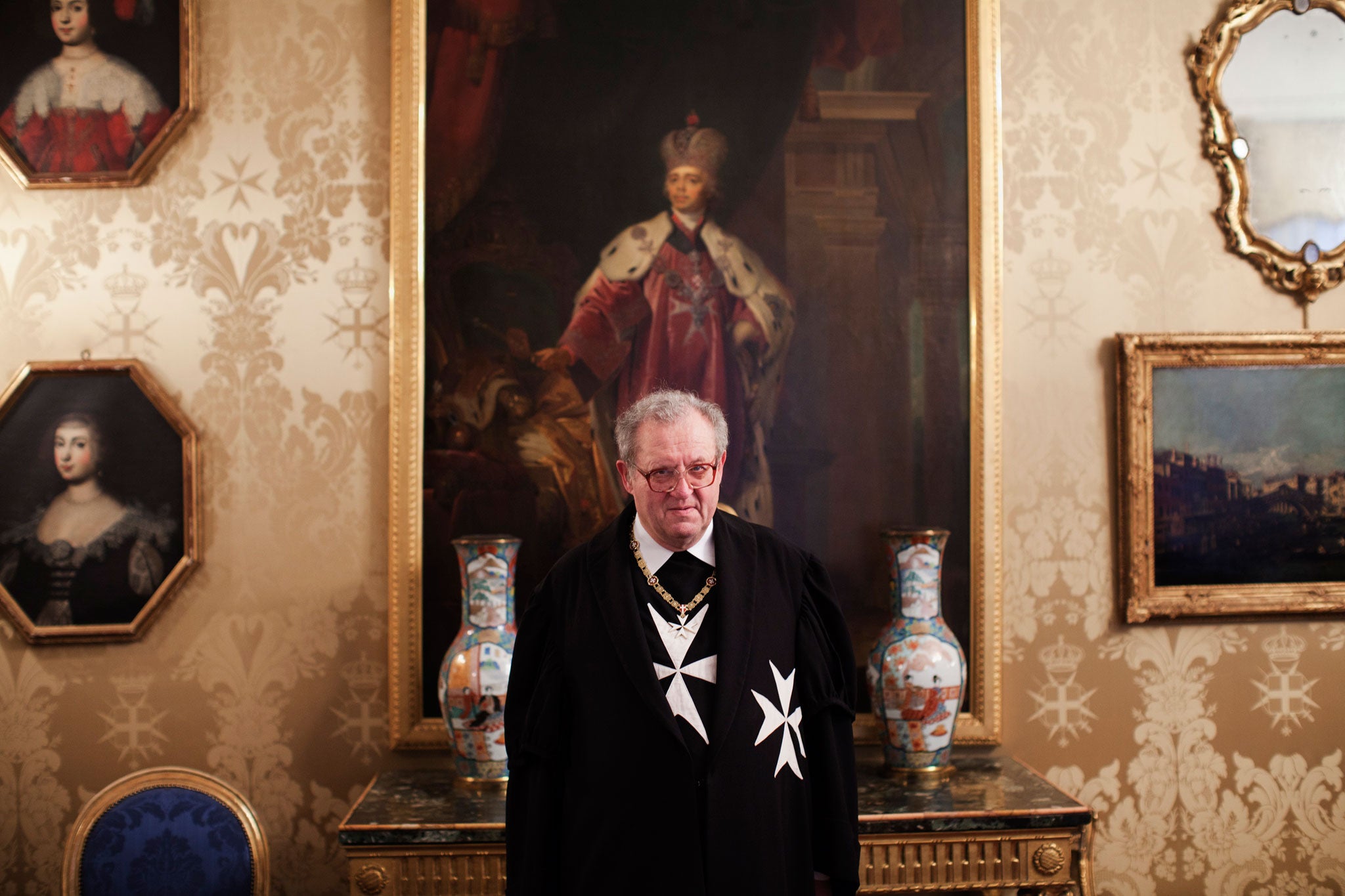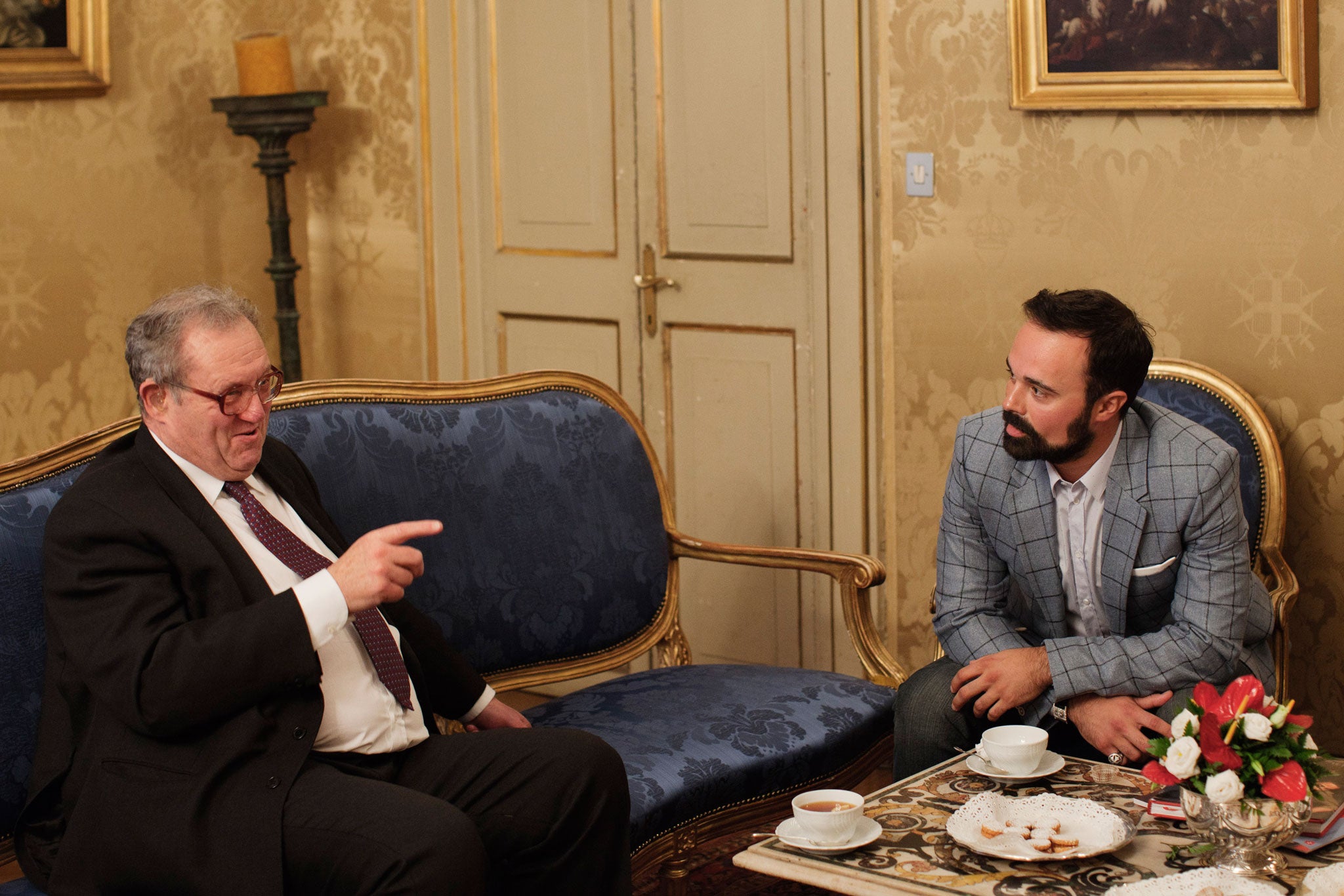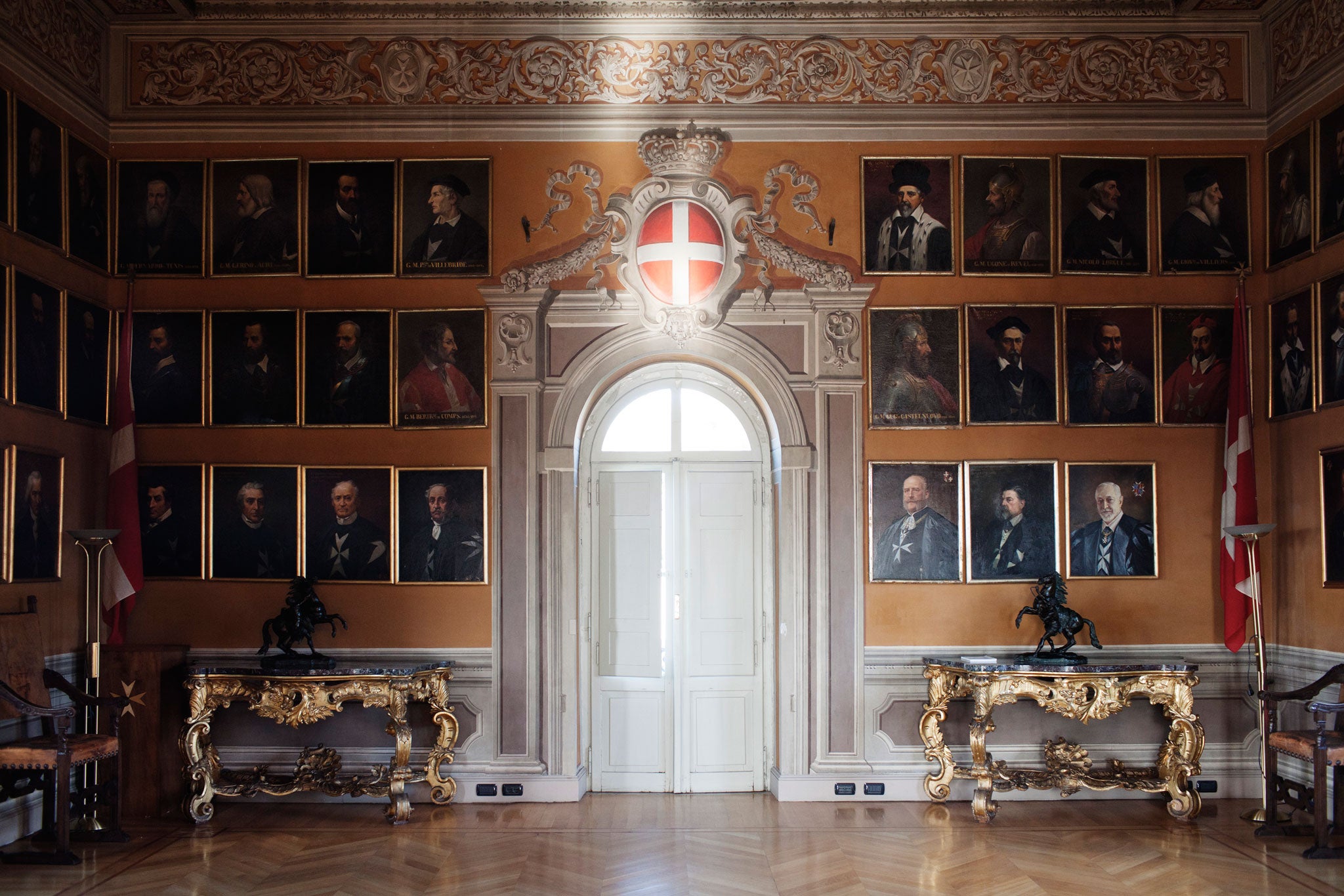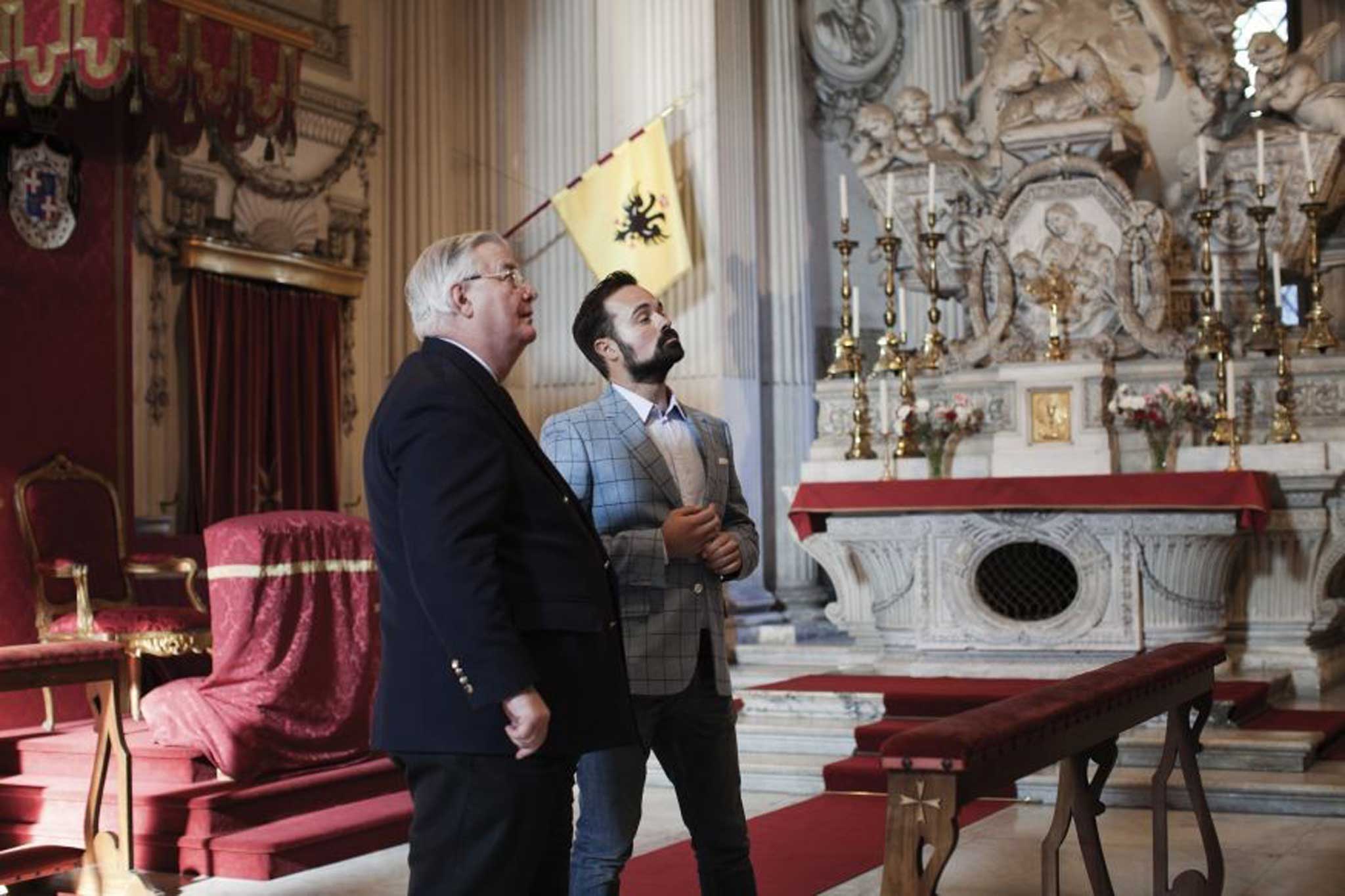Caped crusaders: What really goes on at the Knights of Malta's secretive headquarters?
The ancient religious order is at the centre of every conspiracy theory going. Evgeny Lebedev is invited into their headquarters in Rome

Your support helps us to tell the story
From reproductive rights to climate change to Big Tech, The Independent is on the ground when the story is developing. Whether it's investigating the financials of Elon Musk's pro-Trump PAC or producing our latest documentary, 'The A Word', which shines a light on the American women fighting for reproductive rights, we know how important it is to parse out the facts from the messaging.
At such a critical moment in US history, we need reporters on the ground. Your donation allows us to keep sending journalists to speak to both sides of the story.
The Independent is trusted by Americans across the entire political spectrum. And unlike many other quality news outlets, we choose not to lock Americans out of our reporting and analysis with paywalls. We believe quality journalism should be available to everyone, paid for by those who can afford it.
Your support makes all the difference.Most of the great conspiracy theories thrown up by history are so outlandish that it would seem impossible that anything could unite them. And yet there is a common link between the assassination of JFK, the Iraq War, and most of the conspiracies in between. It's not the reptilian bloodline of David Icke, nor the grubby Shylocks of ancient anti-Semitism. Haven't you heard? It's the Knights of Malta.
Leaked lists of their supposed membership read like a Who's Who of the global establishment: the first President George Bush; Rupert Murdoch; the head of the CIA; Tony Blair; Michael Bloomberg. All, apparently, signed-up representatives of the Sovereign Military Hospitaller Order of Saint John of Jerusalem of Rhodes and of Malta.
"The Knights are your CIA, your politicians, your lobbyist, your previous, present and future presidents," Google tells us. "They are the most powerful group known to man. They are the agents of the dark lord." Which is why, when I received an invitation to visit them at their headquarters in Rome, I booked a flight immediately.
The Order's home is on the Via Condotti, a short distance from the Spanish Steps. The building is part of the bequest it maintained after being forced from its stronghold on Malta by Napoleon at the end of the 18th century. Homeless and largely impoverished, the remaining knights wandered Europe for decades before settling on Italian shores and decamping to their old embassy, which has been the Order's HQ ever since.
All the trappings of a glorious theological order are here: a Renaissance palazzo; rooms holding oil portraits of kings, queens and emperors; a display case filled with ancient swords; and, in its own chapel, a site of such opulence that it is where King Juan Carlos of Spain was baptised by the future Pope Pius XII.
But if the internet fantasists were to gain access to the Order's inner sanctum, they would be gravely disappointed. There is the occasional aspect to get their pulses racing – not least the prevalent heraldry and ever-presentness of minions in their uniform of black tails and scarlet waistcoats – but this is no James Bond bunker. Rather, its tone is musty Oxbridge college, complete with wood-panelled rooms and bookcases filled with dusty tomes. There are even the obligatory pigeon-holes in the porter's lodge for letters.
The Knights are suitably donnish: cerebral, greying and rather rambling in nature. The minions were occupied by serving tea in china cups not – at least while I was there – administering kung-fu chops. The 21st-century incarnation of the Knights of Malta, I can report, is far more Rotary than Hellfire Club.
Grand Master Festing, in particular, is no Bishop Manuel Aringarosa, the power-crazed bishop who heads Opus Dei in Dan Brown's The Da Vinci Code. Born in Northumberland, the 63-year-old resembles the bookish art expert he was until elected head of the Order in 2008, having spent most of his professional life specialising in 17th-century European paintings at Sotheby's North of England office.
On the day I meet him, he's badly afflicted by a chill caught on a visit to the Order's aid projects in Naples, and it seems absurd to compare him to a crusader, as he himself cheerfully admits.
"If you reacted to everything you read you would go mad," he said. "Four or five years ago, there was an Al Jazeera programme with pictures of the Knights of Malta and what we do. One minute there is us looking after refugees, then the shot from El Cid, a lot of people on horses charging, and then a lot of American tanks charging along. It is something you just have to put up with."

The centuries spent in Malta gave the Knights not only their name, but their reputation for power and prestige. The world's oldest surviving chivalric order, it was initially founded in the 11th century by Amalfian merchants in Jerusalem as a monastic order to tend to Christian pilgrims in the Holy Land. They evolved into a fearsome military machine and, after the fall of Jerusalem, at the Vatican's request, they turned Malta into a fortress against the Ottoman horde, most famously when it held out against the full might of Suleiman the Magnificent in 1565, and thereby helped 'save' Christian Europe.
That former territorial ownership means the Knights still have a rather unusual status. Although not a state like the Vatican, the building on Via Condotti, as well as the Order's other site in Rome, a priory on the Aventine hill with its own Piranesi chapel, is officially an independent territory, giving the Knights observer status at the United Nations in a similar manner to the Palestinians. They even have their own passports, postage stamps and, in many parts of the world, ambassadors, who are granted full diplomatic status.
Turning its back on its militaristic past, the Order has used this influence to find a new purpose, by going back to its hospitaller roots. The 118,500 members, employees and volunteers are now in the charity business, working or supporting aid projects in some 120 countries on an annual operating budget of more than £150million.
Haiti, the Democratic Republic of the Congo, and most recently the Philippines, have all been recipients of its emergency relief. Most recently, it even started projects in Turkey, many of which support Syrian refugees, meaning that the eight-pointed Maltese Cross has returned to the modern incarnation of its old enemy.

"We have this huge organisation, but what it does is try to give help where there is need," Festing tells me. "This involves reacting to all sorts of crises: refugee situations, or help for those who have been wounded in war or caught up in natural disasters. We are also trying to improve lives in places of great deprivation, particularly in central Africa and south-east Asia. There you find lack of water supplies; diseases that you thought were done away with, like tuberculosis. The other thing is in Europe, where you can have great disparities of income. You have help given to street children, old people. I like to think they are pretty useful things we do."
In the basement of their HQ is not a catacomb, but a hospital clinic; one of a network – often run with local partners – it has across the world. The one in Naples, for example, treated some 4,300 people last year.
"In Lebanon, we have a joint programme with the Shia," the Grand Master explains, "so [we] have Muslim ladies working in our clinic. In Egypt, we work closely with those treating leprosy. The work we are doing with the Syrians is with the Blue Crescent. How soon we can get into Syria, we don't know. At the moment it is impossible. It is in such a chaotic state.
"One of the things we always do is try to ensure our contact with these countries is very non-political. This is extremely important. For example, in Myanmar, when a cyclone hit four years ago, we had people there, but various other people, such as the Americans, were sent packing. We have seen the same elsewhere."
Not that this hospitaller life is without its trappings. The Grand Master is officially classed as a prince, and has the status of cardinal within the Catholic Church. The Order even has its own black robes that are worn for ceremonial occasions. "Tradition is a good thing," Festing says of such iconography, "provided, of course, you don't become enslaved to it."

He regularly meets the Pope and was close to Benedict XVI who, despite his public persona, Festing says had a great sense of humour. "If you say something funny he laughs, and he can also make funny remarks about things. It's rather charming. But Benedict was certainly more formal than the new Holy Father.
"His approach is different because he's a different man. He's very much a pastoral bishop, which is where he comes from, and of course Pope Benedict is very much a theologian. Yet I think fundamentally they are very, very similar. I don't think we'll suddenly get a change of direction in some amazing way."
For centuries, Knights were required to take a vow of poverty, chastity and obedience. Today, only obedience is required, and the Knights are no longer drawn solely from the ranks of Europe's nobility.
But the international-string-pulling, behind-the-scenes world order? Sadly not, I am told. "You will always have someone saying this or that," Festing says. "The weight of history does not impede us, but there is never a moment when somebody, particularly Arab journalists, are not saying, 'Ahh, the crusaders are back'. Occasionally we react and say we are not really crusaders any more, and so on. But we try to remain calm. We know our true function and we are pretty proud of that. About the rest of it, you try not to pay too much attention to it."
Evgeny Lebedev is the owner of the Independent titles and the London Evening Standard. Follow him on Twitter @mrevgenylebedev
Join our commenting forum
Join thought-provoking conversations, follow other Independent readers and see their replies
Comments